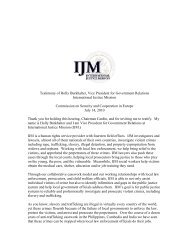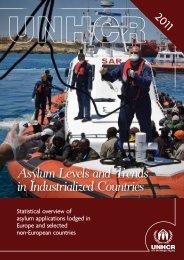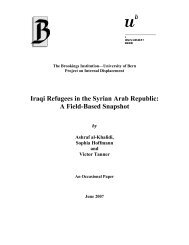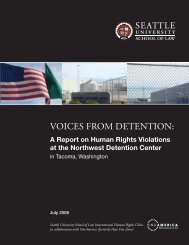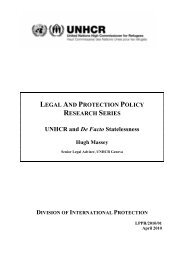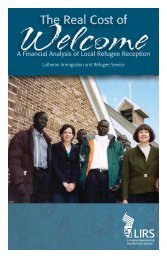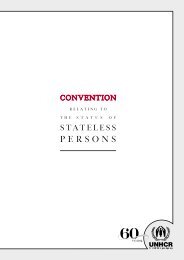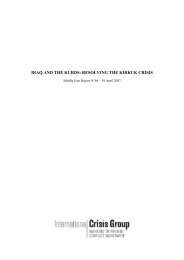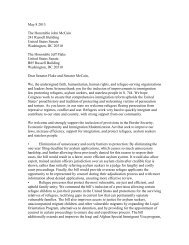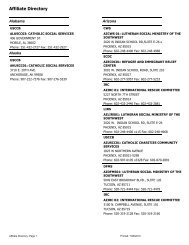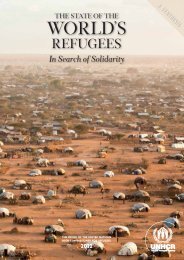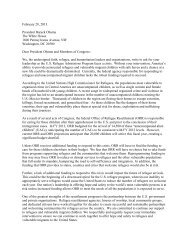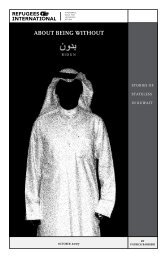Preventing and Reducing Statelessness - UNHCR
Preventing and Reducing Statelessness - UNHCR
Preventing and Reducing Statelessness - UNHCR
You also want an ePaper? Increase the reach of your titles
YUMPU automatically turns print PDFs into web optimized ePapers that Google loves.
How CAN the 1961 Convention assist States IN reduCINg statelessness-<br />
By applying the safeguards elaborated in the 1961 Convention wherever a<br />
person would be left stateless, States can prevent new cases of statelessness<br />
from arising. The 1961 Convention’s provisions are, however, equally relevant<br />
to the task of reducing statelessness. It does this in two ways. First, prevention<br />
of statelessness leads to a reduction of statelessness over time. Second, when<br />
bringing their domestic legislation into line with the safeguards detailed in<br />
the 1961 Convention in order to prevent future statelessness, States are encouraged<br />
to also use this opportunity to reduce statelessness. For example, States<br />
may apply newly introduced safeguards retroactively <strong>and</strong> accordingly allow for<br />
acquisition of nationality by stateless people.<br />
What does the 1961 Convention ask States to do-<br />
There are four main areas in which the 1961 Convention on the Reduction<br />
of <strong>Statelessness</strong> provides concrete <strong>and</strong> detailed safeguards to be implemented<br />
by States in order to prevent <strong>and</strong> reduce statelessness. <strong>UNHCR</strong> can<br />
offer technical support to help States ensure that these safeguards are reflected<br />
in their nationality legislation <strong>and</strong> practice.<br />
><br />
Measures to avoid statelessness among children<br />
Articles 1 to 4 concern the prevention of statelessness among children.<br />
States shall grant their nationality to children who would otherwise be stateless<br />
<strong>and</strong> have ties with them through either birth in the territory or descent. As<br />
a result, where children are born in the territory but acquire the nationality<br />
of a foreign parent, there is no obligation to grant nationality. Nationality<br />
shall either be granted at birth, by operation of law, or upon application. The<br />
1961 Convention permits States to make the conferral of nationality subject<br />
to certain conditions, such as habitual residence for a certain period of time.<br />
Under Article 2, States shall grant nationality to foundlings (children found<br />
on the territory).<br />
><br />
Measures to avoid statelessness due to loss or renunciation of nationality<br />
Articles 5 to 7 prevent statelessness in later life by requiring prior possession<br />
of or assurance of acquiring another nationality before a nationality<br />
can be lost or renounced. Two exceptions to this rule are provided for: States<br />
may withdraw nationality from naturalized persons who subsequently take up<br />
long-term residence abroad <strong>and</strong> from nationals who were born abroad <strong>and</strong> are<br />
4<br />
P r e v e n t i n g a n d R e d u c i n g S t a t e l e s s n e s s



